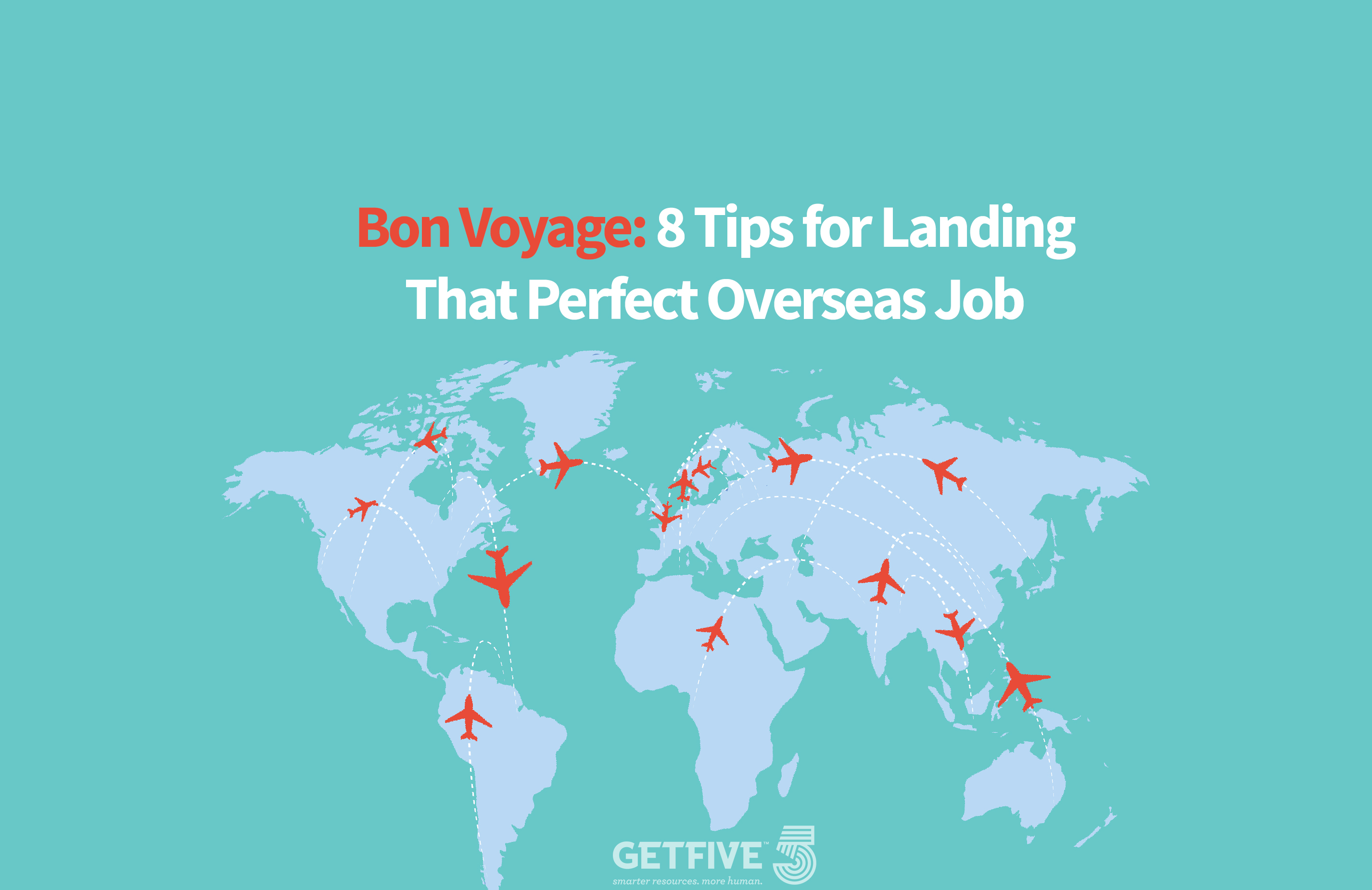Have you ever visited a foreign country and wondered how you might get a job so you could live there permanently?
If so, you’re far from alone. A recent poll indicates 62 percent of workers would relocate to pursue their dream job. Still, most of us have no idea how to get started with such a quest.
As such, here are a few suggestions that might move you in the right direction.
- Brainstorm the kinds of jobs that interest you and align with your education, skills, and experiences, then conduct online research as to the kinds of firms in your target market that hire those with similar backgrounds. Is there something in your background employers there might especially value? Career assessment resources can help you develop a personal profile that answers those questions.
- Consider any barriers to success. What are the citizenship and work eligibility requirements in your target country? Are you fluent enough in the key language? How easily can you adapt to the culture? Will your technical skills seamlessly transfer? If you’re lacking in anything important, now may be the time for remediation.
- List conduits that will aid your job search, including networking with others, contacting recruiters, attending job fairs, and checking job sites, corporate or government websites, and foreign periodicals. In some cases, you might contact companies directly. Ultimately, your fastest route may be securing a job with a company in the U.S. that has divisions abroad, then seeking a transfer.
- Research best job application practices for the country in question, then retool your cover letter and resume accordingly. Outside the U.S., the curriculum vitas (CV) format tends to be more popular than the resume. In your cover letter, emphasize preparations you’ve already made to facilitate your move, including making living arrangements, establishing time commitments, logging language skills, and/or securing official permission to work in a given country.
- Post your optimized CV on international job sites, ensuring keywords align with local language.
- Contact anyone in your network (like college alumni and professional organizations) who could help with international job leads, cultural advice, or other information.
- Practice your video conferencing skills, since any interviews you secure are likely to be via Skype.
- If you’re getting lackluster results, consider traveling or moving to your target country so you can meet with prospective employers in person and perhaps secure relevant intern or volunteer experience. But take plenty of savings and a list of contacts and leads to pursue, and avoid burning bridges back home in case your quest is unsuccessful.
Ultimately, trying to secure a job overseas could be well worth your time, as such positions can lead to valuable new skills and give you a new perspective on the world at large.
“With international mobility assignments set to increase over the next five years, those who have had the chance to work overseas will return home with deeper skill-sets, experience, and perhaps even pockets,” advises Richard Hanson in Forbes. “Having an overseas assignment on your resume is going to support your career development and may potentially become a benchmark for employers when looking to promote or hire leaders in the future.”









